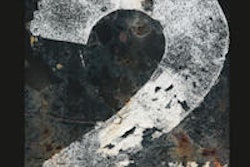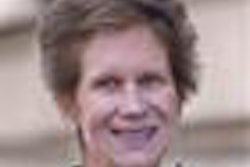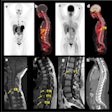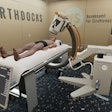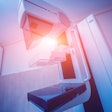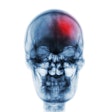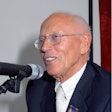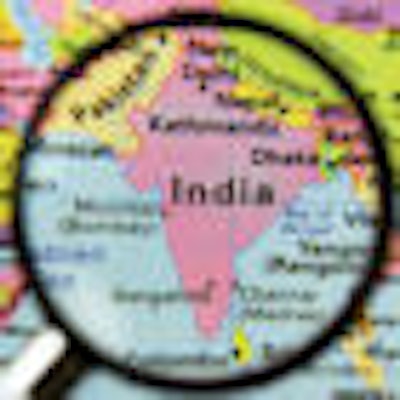
Intense media scrutiny over the spread of second opinion services in the Netherlands has rekindled discussion about the ethical and legal position of commercial teleradiology operators. While some experts see such a "patient-centric" business model as a logical evolution mirroring that of similar services in the U.S., others feel considerable unease about the situation.
RadiologieUitslag.nl, a start-up company offering a second opinion to patients, has provoked a mixed reaction among radiologists after reports in the national press about the website's use of Indian teleradiology firms for such readings.
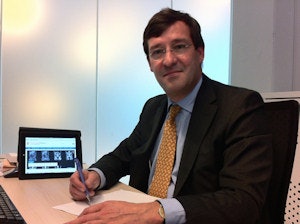 India is the perfect location for a second-opinion service, according to Maarten Klessens.
India is the perfect location for a second-opinion service, according to Maarten Klessens.India was the ideal location for a partnership, given the high caliber of the country's medical professionals, according to RadiologieUitslag.nl's CEO Maarten Klessens. The idea was born from a trip to the country in 2004, which he repeated in 2010 with a Dutch radiologist.
"Profit margin was not a factor. I chose India because of the assurance of top-quality reporting through teleradiology firms that are rated by U.S. firms, and the certainty of a 24/7 delivery," he said.
The service, which went live at the end of December 2011, involves patients uploading their DVDs to the website. The files are then submitted to the teleradiology operation in India. Examinations are all double-read by the agency's radiologists, and reports are generated in standard medical English within six to 24 hours, noted Klessens, adding that patients are encouraged to discuss these second opinions with their physicians.
"The service works predominantly for two categories: patients with a severe diagnosis who want a second opinion, and cancer patients. In Holland, patients who undergo periodic checkups for cancer typically may have to wait three weeks to receive their report. I am hoping that our website will prompt hospitals to deliver these reports more swiftly after follow-up exams," said Klessens, whose professional background involves 25 years in banking.
Outpatients want to have their examinations and read their own reports, according to Dr. Paul Algra, a consultant radiologist at the Medical Center Alkmaar (MCA) in Alkmaar, the Netherlands, who has experience of teleradiology. He supports the idea of a second-opinion provider, but he voices doubts about some aspects of the service provided by RadiologieUitslag.nl.
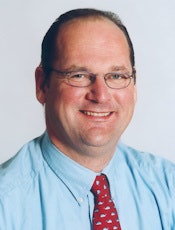 Outpatients want to own and access their radiological examinations and reports, Dr. Paul Algra believes.
Outpatients want to own and access their radiological examinations and reports, Dr. Paul Algra believes."I'm not against doing business with India. I just don't agree with sending exams outside of the country -- whether it's to India, France, Germany, or Australia. Referring physicians should know who the teleradiologist is," he said. "Also the reading radiologist should have access to old examinations, clinical information, and preferably to the hospital information system (HIS)."
In the 900-bed MCA, a team of 12 radiologists teleconsult daily for different cases with five orthopedic clinics in the Netherlands, and these Dutch teleradiology partners meet each other monthly.
"It's important for there to be good communication between the referring physician and the radiologist. The conversation should be in the same language because subtleties can be missed when reporting in a language that is not one's mother tongue," Algra said. "These second-language reports from India tend to be more defensive and therefore vaguer. Surgeons want certainty and a report that doesn't exclude anything won't be very helpful."
In response to the claim that doctors using a second language might miss something vital or may not be able to express "subtleties," Klessens strongly denies that this is a problem.
"The reports are in normal medical English, and all the doctors employed by the company have been educated in the U.S. or Europe -- this is stipulated in our contract with the firm. Although the company is based in India, it uses radiologists from all over the world, including the U.S.," he said. "I believe that there has been a lot of bad mouthing of this type of service, but the patients are happy with the product and nobody has asked: Why are you doing this?"
Another major issue for cross-border teleradiology is how best to safeguard patient privacy and security. The privacy of patient information may be at risk, and if there is an alleged medical error, the jurisdiction can be uncertain, unless it is stipulated in a contract between the teleradiology provider and a company such as RadiologieUitslag.nl. When an examination is sent to a foreign country for reporting, credentialing is not valid, unless the patient can get some sort of guarantee from the company. It may be uncertain who would be liable if an error occurred.
For examinations undertaken in the Netherlands, all teleradiology reports for Dutch referring physicians must be in Dutch, according to Dr. Hans Smeets, a general radiologist specializing in musculoskeletal, breast, and gastrointestinal imaging and CEO of Teleconsult Europe (TCE), the Hague. TCE and its sibling company Teleconsult France, Lyon, work with teleradiologists throughout the Netherlands and France to offer remote reporting, locum, and IT services. They also employ both Dutch and non-Dutch radiologists working in the U.S. and the European Union (EU), and plan to soon involve Dutch doctors based in Australia and New Zealand and a network of General Medical Council-registered radiologists for U.K. customers.
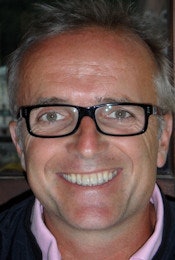 Teleconsult Europe and its radiologists are more than satisfied with the quality of first-read reports from India, according to Dr. Hans Smeets.
Teleconsult Europe and its radiologists are more than satisfied with the quality of first-read reports from India, according to Dr. Hans Smeets."Every radiologist who works for TCE is screened and double-read by designated radiologists of our quality assurance team. If we feel confident in the radiologist, this monitoring decreases but never totally ceases so that we can be sure that individual standards don't slip over time," he explained.
For the last four years, TCE has worked with an Indian teleradiology company to provide some of its customers with double-read reports when requested for specific cases. This involves a first-read report made by a subspecialty radiologist in India, after which the report is translated into the customer's language. Subsequently, the second read is completed by an EU or U.S. board-certified radiologist.
"The result is a high-quality double-read report at an affordable price. TCE and its radiologists are more than satisfied with the quality of first-read reports they receive from their Indian colleagues," he said.
Smeets has mixed feelings about patients paying for second opinions, given that the radiological report is only part of the diagnosis, along with physical examination and blood tests. He hopes Dutch teleradiology overall would gain wider national and international acceptance.
"In a time of tight budgets, teleradiologists are a hidden workforce, and the flexibility of teleradiology is ideal for older specialists, or those with young children needing to juggle professional and home lives," he said. "Traditional hospital radiology groups sometimes perceive us as a threat. This is an unfortunate misconception; our services can be called upon when the need arises and switched off when our support is no longer required."




